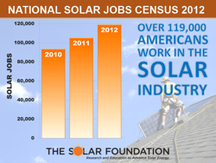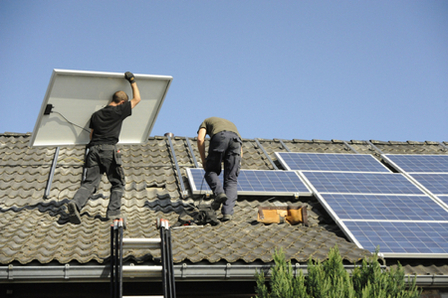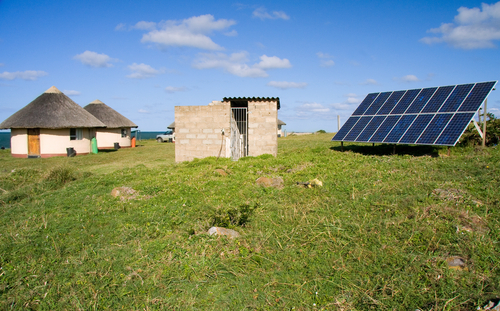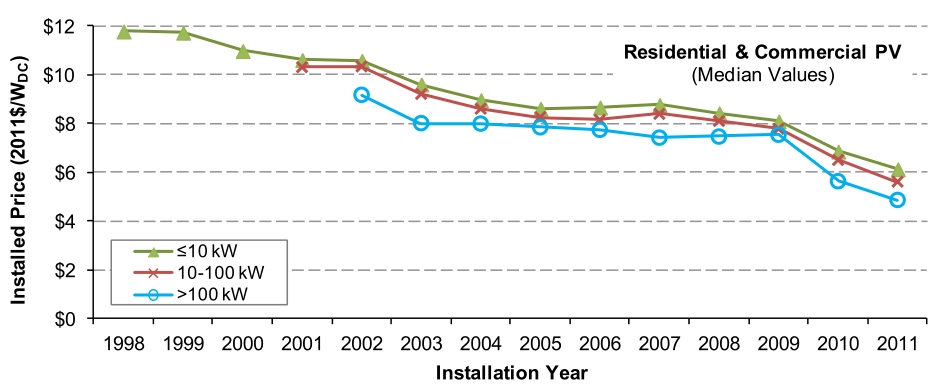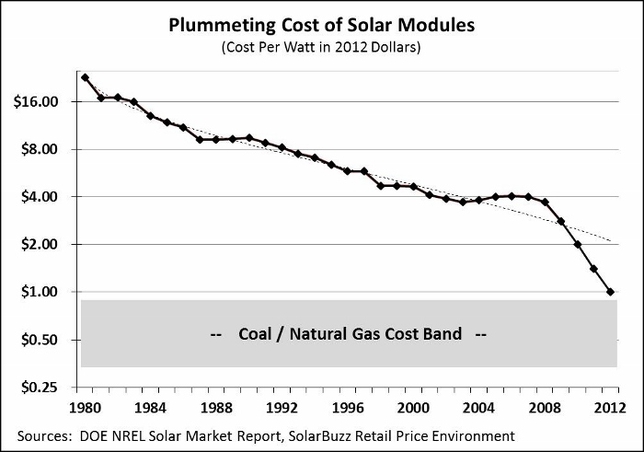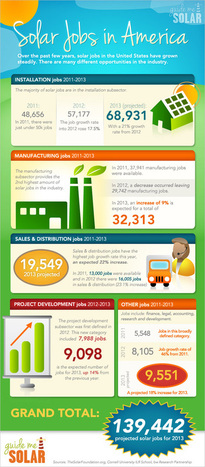Solar Power
|
Navigation
|
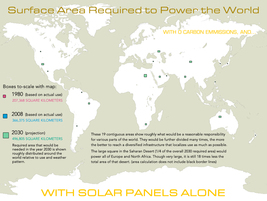 Credit: Land Art Generator Initiative | Click to enlarge
Solar power is the conversion of sunlight into electricity, either directly using photovoltaics (PV), which convert light into electric current, or indirectly using concentrated solar power (CSP), which use lenses or mirrors and tracking systems to focus a large area of sunlight into a small beam. Solar power is one of the cleanest, most abundant forms of energy. It emits zero greenhouse gases or other pollutants, uses no water, produces no waste and offers significant potential for short- and long-term climate change mitigation. Even though solar energy generation still only represents a small fraction of total energy comsumption, markets for solar technologies are growing rapidly, the cost of solar technologies have been significantly decreasing and technical advances and supportive public policies continue to offer the potential for additional cost reductions. The rate at which solar energy is intercepted by the Earth is about 10,000 times greater than the rate at which humankind consumes energy and although not all countries are equally endowed with solar energy, a significant contribution to the energy mix from direct solar energy is possible for virtually every country. Solar energy conversion consists of a large family of different technologies capable of meeting a variety of energy service needs for both developing and developed countries. Solar technologies can deliver heat, cooling, natural lighting, electricity, and fuels for a host of applications, but without the pollution! Learn more.
“I have no doubt that we will be successful in harnessing the sun's energy... If sunbeams were weapons of war, we would have had solar energy centuries ago.” ~Sir George Porter, 1967 Nobel Prize Chemist
|
"Getting 20 percent of our energy from renewable sources by 2020 would create 820,000 new jobs from renewable energy development, $66.7 billion in new capital investment, $25.6 billion in income to farmers, ranchers, and rural landowners, $2 billion in new local tax revenues, $10.5 billion in lower electricity and natural gas bills by 2020 (growing to $31.8 billion by 2030) and reductions in global warming pollution equal to taking 36.4 million cars off the road. Renewable energy savings equivalent to 15% of electricity consumption and 10% of natural gas consumption by 2020 could save $26 billion in consumer costs, eliminate 300 million tons of carbon emissions, reduce the need for 443 new 300 MW power plants and power 40 million homes In sum, we can face the challenge posed by global warming by taking steps today towards unleashing a clean energy future." ~Sierra Club: Clean Energy Solutions - Renewable Energy
|
Advantages Of Solar Energy
|
|
In 2011, the International Energy Agency stated, "The development of affordable, inexhaustible and clean solar energy technologies will have huge longer-term benefits. It will increase countries’ energy security through reliance on an indigenous, inexhaustible and mostly import-independent resource, enhance sustainability, reduce pollution, lower the costs of mitigating climate change, and keep fossil fuel prices lower than otherwise. These advantages are global. Hence the additional costs of the incentives for early deployment should be considered learning investments; they must be wisely spent and need to be widely shared."
|
Powered by SolarEnergy.net
|
"In the business-as-usual scenario, electricity supply costs will nearly double by 2020. Unchecked growth in energy demand increases in fossil fuel prices and the cost of CO₂ emissions result in total electricity supply costs rising from today’s $2,300 billion US dollars per year to more than $4,000 billion in 2020, and $8,800 billion by 2050. By moving away from fossil fuels and reducing carbon emissions, we can stabilise energy costs for consumers. Between 2015 and 2020, most renewable energy sources will become cheaper than coal." ~Greenpeace, The Energy [R]evolution
|
"It is time for a sustainable energy policy which puts consumers, the environment, human health, and peace first." ~ Dennis Kucinich, U.S. Congressman
|
Last Revised: 11/20/13
Commenting Rules |

